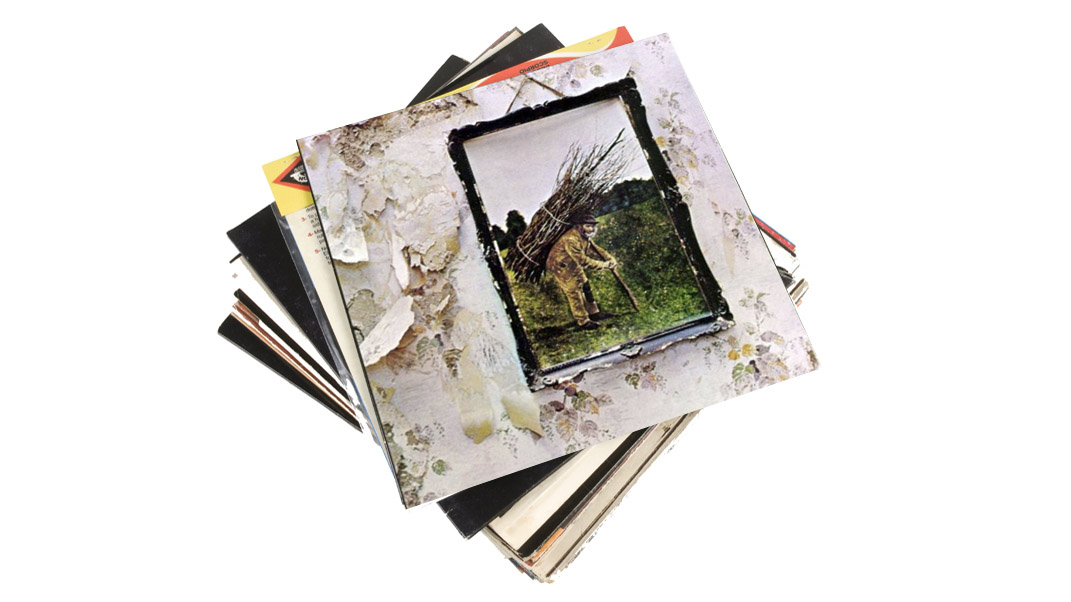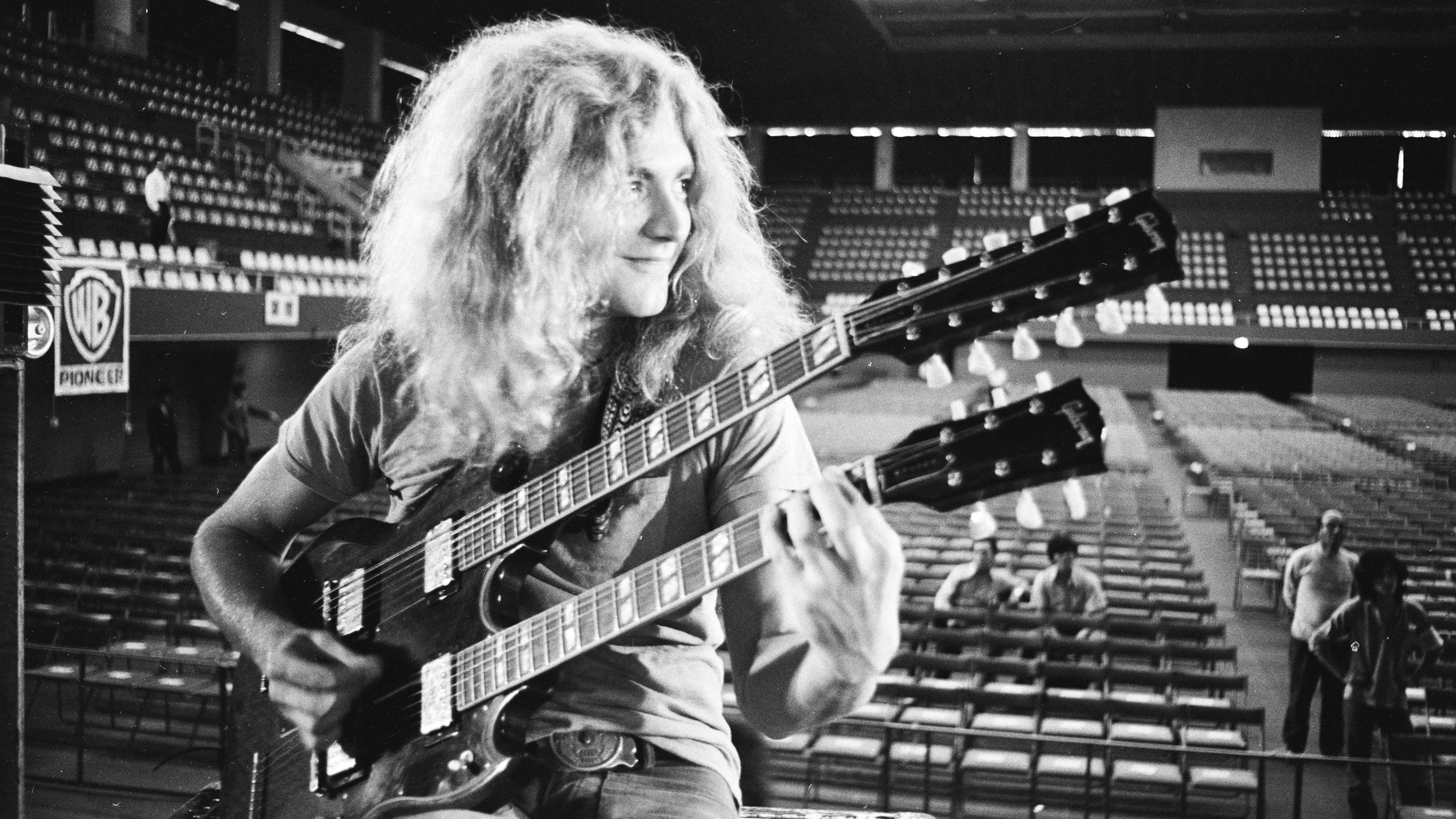
It’s been hailed as the rock epic to end all rock epics, a sprawling paean to rustic mysticism with stunning dynamics that span woodwind-tinged folk, intricate fingerpicking and raw, unbridled rock. Across its seven minutes and 55 seconds running time, Led Zeppelin’s Stairway To Heaven has lost none of its power and sheer sense of wonder.
As Gibson unveils a new guitar partnership with Zeppelin’s Jimmy Page, kicking off with a recreation of his 1971 Gibson EDS-1275 double neck – the instrument he used to play Stairway To Heaven live – MusicRadar reassesses the creation of the track and its enduring legacy.
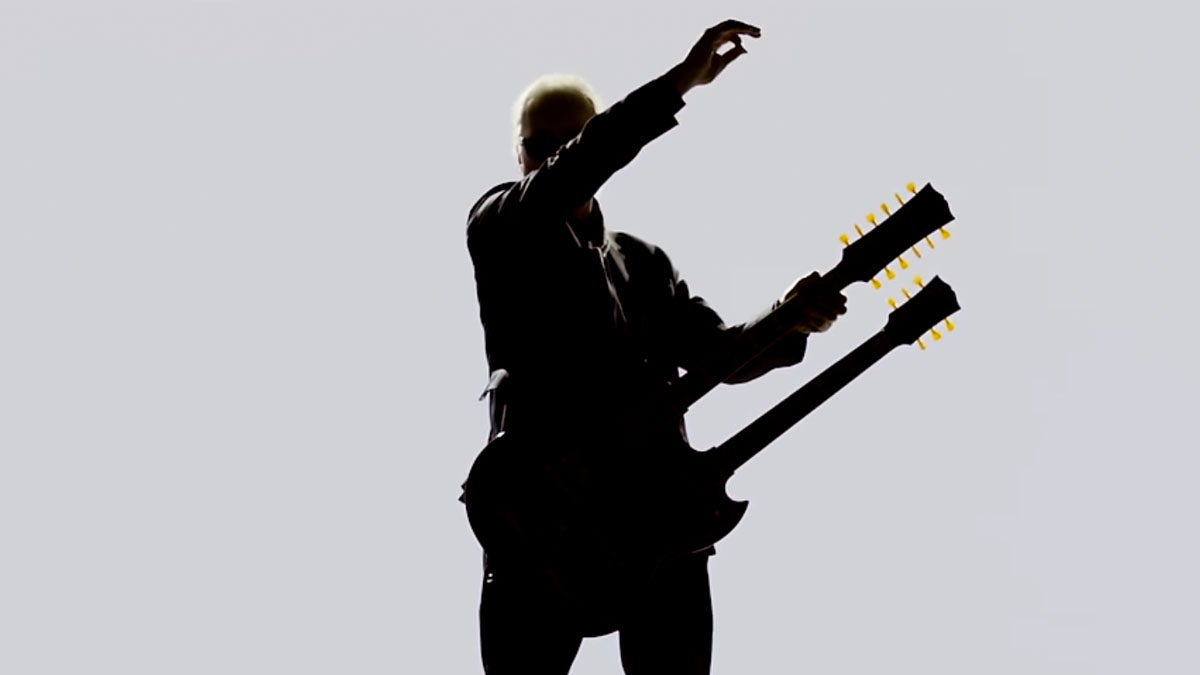
It was April, 1970 when Jimmy Page first got the idea to create an epic composition that would “unravel in layers as the song progressed”. Led Zeppelin had just completed a long and gruelling North American tour, their fifth since forming in 1968.
The band had some time off and Robert Plant invited Page to stay at his remote 18th century cottage Bron-Yr-Aur, in Montgomeryshire, mid-Wales. The cottage had no electricity or running water but the setting was sublime.
“We'd been working solidly right up to that point,” Page told Uncut magazine in 2009. “Even recordings were done on the road… So we took our guitars down there and played a few bits and pieces. This wonderful countryside, panoramic views and having the guitars ... it was just an automatic thing to be playing. And we started writing.”
In an interview with Phil Sutcliffe in Mojo in 2000, Page recalled that he wrote the music "over a long period, the first part coming at Bron-Yr-Aur one night". He always kept a cassette recorder around and said the idea for Stairway came together from bits of taped music.
He alluded to the song in an NME interview in 1970: “We want to try something new with the organ and acoustic guitar building up and building to the electric thing.”
The song has three distinct sections, each one progressively increasing in tempo and volume.
The guitar used by Page to write the early parts of the song was a Harmony Sovereign H-1260 while the instrument used in the middle section of the track was a Fender XII 12-string guitar.
Page discussed the whole idea for the song with Michael Hann of The Guardian in 2014. “It begins with the concept of trying to have something [that] would unravel in layers as the song progressed,” said Page. “You’ve got the fragile guitar that is going to open the whole thing, you’ve got the vocal over that fragile guitar, and then it moves into the more sensual wave with the twin 12-strings, and the electric piano as well.”
I had the bit which I called ‘the fanfare,’ which is where the 12-strings really sing out before it goes into the solo
Page worked out arrangements for the song at his house in Pangbourne, near Reading. “I wrote it on the Harmony guitar, and I worked out how the thing was going to run for the parts that were going to be the vocal,” he told Rolling Stone. “And then I had the bit which I called ‘the fanfare,’ which is where the 12-strings really sing out before it goes into the solo. And I had all the chords for the solo, and the solo chords were going to be the end section.”
Page presented it to the band during recording sessions at Island Records’ new studios in Basing Street, London. It was a complete departure from what they had done before. “I think it was more: ‘This is tricky’,” recalled Page. “It’s not just one of those things where it goes verse-chorus-verse. It was tricky because it had sections, but they didn’t repeat exactly the same each time.”
This, as far as I could see, was in league with the whole concept of classical writing where everything is moving, moving, moving
The song also had radical changes of tempo from start to finish. Even for seasoned session players like Page and bassist John Paul Jones, it was wholly at odds with everything they had learned in the course of their extensive studio work. “You would find that, having been a studio musician, the one thing any trained musicians will tell you you don’t do is speed up or slow down," Page told The Guardian. "This, as far as I could see, was in league with the whole concept of classical writing where everything is moving, moving, moving.”
The band then relocated to Headley Grange, in Hampshire, to continue recording. Here Page and Jones sat down with an acoustic guitar and keyboards respectively, to tackle the complex arrangement and work out how best to transition between the sections.
Headley Grange was also where Robert Plant began writing lyrics for the song, seated by a log fire one evening, while Page strummed the chords. “A huge percentage of the lyrics were written there and then,” recalled Page.
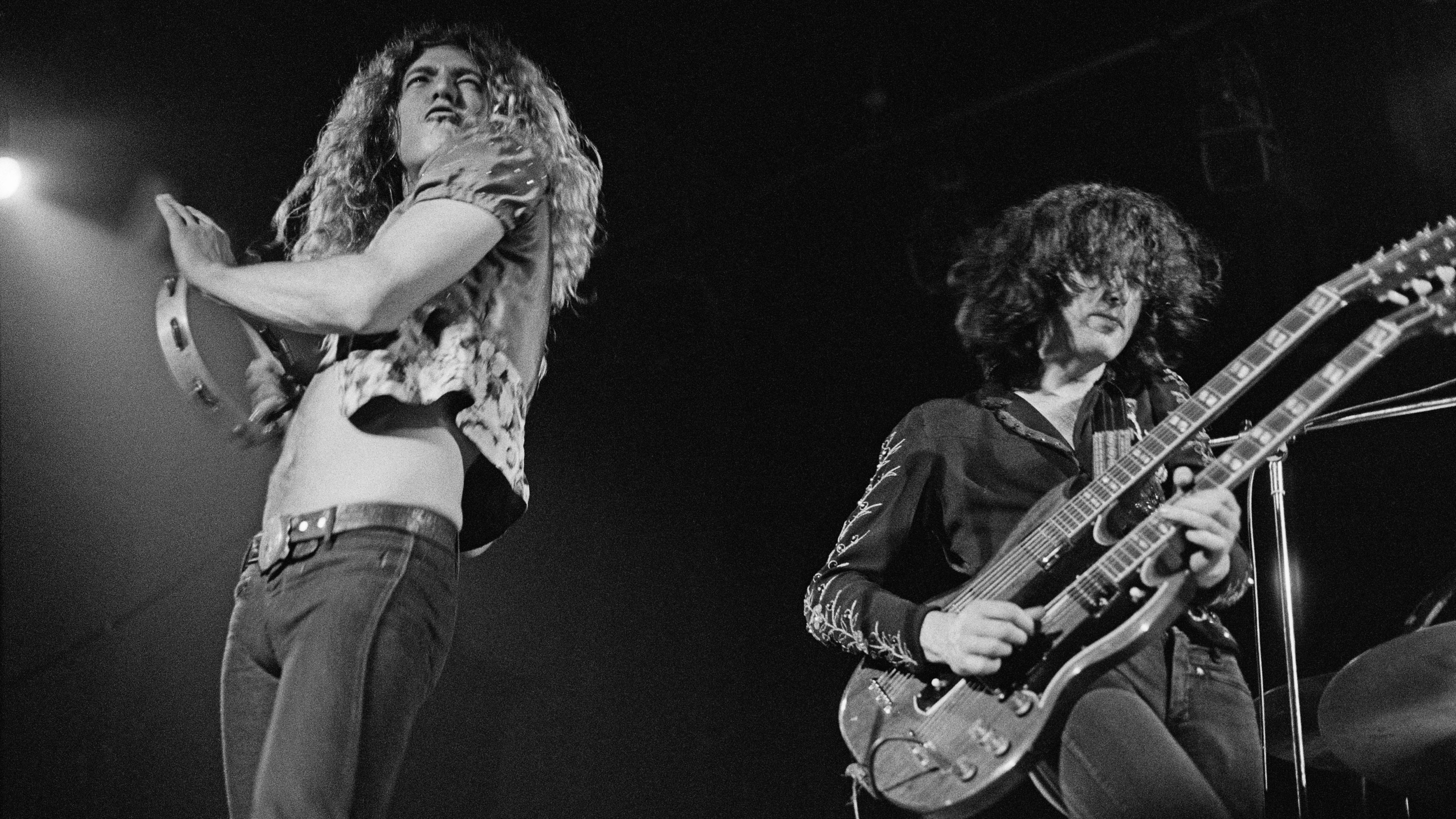
Robert’s writing his lyrics, and it’s almost like he’s channelled the damn thing
With themes spanning rustic mysticism and Arthurian folklore, the lyrics have sometimes been derided. ”If you absolutely hated Stairway to Heaven, nobody can blame you for that because it was so… pompous,” Plant told Q magazine in 1988.
But despite such misgivings, they are lyrics that work for the song, conceived at a time when runes, magic and Tolkien were common parlance within the nascent counterculture. Certainly, as Page and Plant navigated their way through the new song in front of a blazing, crackling fire that evening at Headley Grange, the words that Plant scribbled down seemed right for the moment. “Robert’s writing his lyrics, and it’s almost like he’s channelled the damn thing,” recalled Page.
Page recalled that as he and Plant ran through the song, the sections really started to gel. “I remember vividly Robert was sitting on the floor, back against the wall, writing, while this was going on,” he told Hann for The Guardian. “We had another couple of run-throughs and then he walks over and he starts singing along. From my recollection he had a good 90% of it then.”
I always put the solo on at the end because you’re really living the track by then
The next stage was to run through the track with the whole band. Page was keen to ensure that John Bonham’s contribution would have an impact. “Keeping John Bonham to come in for effect was a trick I’d used before, on things like Ramble On,” he told The Guardian. “I knew that would be successful, because whenever he came in he made so much difference.”
The majority of Stairway To Heaven was recorded during sessions for their fourth album at Headley Grange, including the vocals. The last element to be recorded on the track was Page's solo, and for this, he returned to Island’s new studios in Basing Street, London.
“I always put the solo on at the end because you’re really living the track by then, and being the producer you’ve already supervised all the overdubs that have already gone on,” Page told Classic Rock in 2021.
It could have been a Marshall, but I can’t remember
Jimmy Page
For the solo he used the 1959 Telecaster, which had been given to him by Jeff Beck before Page customised it as the 'Dragon'. “Even though I’d been playing Les Pauls, I wanted to get that bite of the Telecaster on it. It was the same Telecaster that I’d played on the first album, the one Jeff Beck had given me that I’d used in The Yardbirds. A bit of a magical guitar, really.”
Opinions differ on what amp Page used for the solo. It was believed to be a Supro but in an interview with Guitar World magazine, he said: “It could have been a Marshall, but I can’t remember.”
Page recalled that his solo was recorded very quickly.“I just said: ‘Roll it’, took a deep breath – that’s what I usually do – and then go. I had a couple of cracks at it, because you didn’t have as many options as you would have now. I worked out how I was going to actually come into it, the first two or three notes, but after that I didn’t work it out, I just played it.”
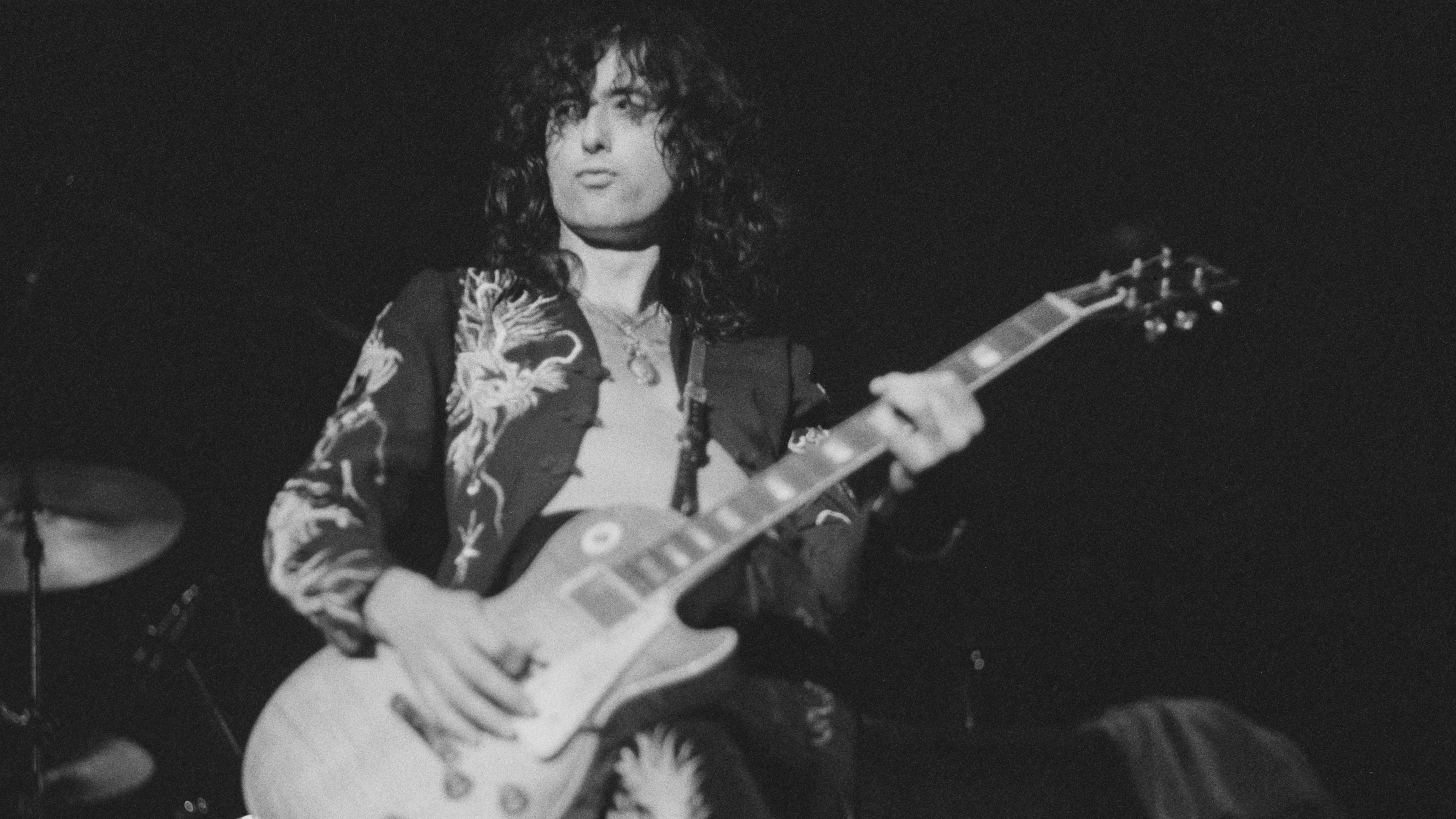
Stairway To Heaven was released as a single on 8 November, 1971. The band first played it live at Belfast’s Ulster Hall on 5 March 1971 and by then Page had settled on the Gibson EDS-1275 double neck, to avoid him having to change guitars mid-song.
John Paul Jones remembered that the crowd were unimpressed by the new song. “They were all bored to tears and waiting to hear something they knew,” he told BBC Radio 2. But by 1973, Stairway To Heaven was a high point of their live set and the band were extending the song to over 10 minutes long, with Page playing an extended guitar solo.
I’d break out in hives if I had to sing it every show
Robert Plant
In the decades that followed, Robert Plant voiced misgivings about performing the song. “I’d break out in hives if I had to sing it every show,” he told the Los Angeles Times in 1988. “I wrote those lyrics and found that song to be of some importance and consequence in 1971, but 17 years later, I don’t know… No more Stairway To Heaven for me."
And so it proved until 1994, when Plant and Page performed the song during a TV performance. On 10 December 2007, at a one-night only Led Zeppelin set for the Ahmet Ertegun tribute concert in London, the band performed the song. Then, 16 years later, on 22 October, 2023, Plant performed the song once more at a Cancer Awareness Trust charity benefit concert organised by Andy Taylor of Duran Duran at a private club in Oxfordshire – who also perfomed.
“Someone bid a huge amount of money for him to sing this song,” said Goldray guitarist Kenwyn House, who was in the band alongside Plant that night. “There is a good circle of karma around it. That raised a six-figure sum for the charity, that one song.”
His vocals may not have had the soaring high notes but there’s a real feel and gravitas to Plant’s performance.
For Jimmy Page, Stairway To Heaven remains a justifiably creative high point and one element that continued to inspire him long after he laid it down in the studio, was his solo. “After the recorded version was laid down on record, the solo would remain in a similar vein live, but not exactly the same,” he told Classic Rock in 2021. “I was constantly changing it, mutating it, like we did with all the songs . That doesn’t mean I ever surpassed the one on the record,” he stresses. “It is what it is and you can tell that it’s just flying. It’s not a laboured solo, it’s not something that’s worked out, written down and read, it’s more like a stream of consciousness.”
